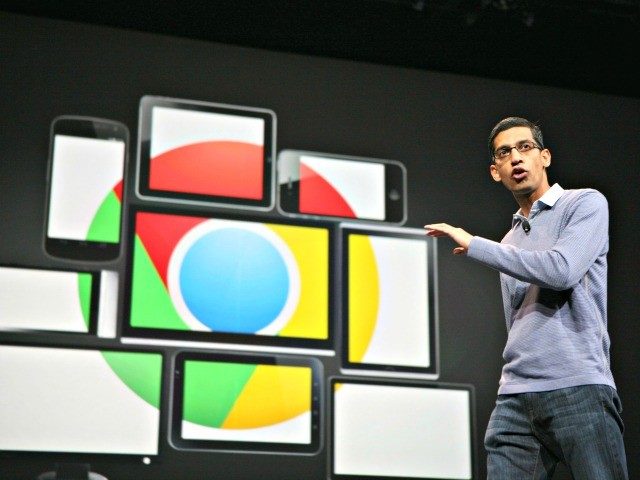Google, which has a stranglehold on the internet advertising market along with Facebook, reported that its online ad revenue for the second quarter jumped 70 percent to $50.44 billion. Google’s video platform YouTube enjoyed an ad revenue jump of 83 percent last quarter, passing $7 billion.
Deadline reports that tech giant Google’s video-sharing platform YouTube saw ad revenue jump last quarter, passing $7 billion from $3.8 billion one year ago. Google’s parent company Alphabet saw an overall sales surge during Q3 of 2021, reaching nearly $62 billion up from $38 billion, beating Wall Street analyst expectations.
The numbers were released amid a flood of big tech earnings reports including Apple and Microsoft. Google claimed that retail was the biggest contributor to ad sales, along with travel, financial services, and entertainment. Alphabet Chief Financial Officer Ruth Porat pointed to a “rising tide of online activity in many parts of the world,” in the second quarter as a possible contributing factor to increased sales.
Google combines subscription services such as YouTube Premium and YouTube TV as well as in-app purchases, digital content products, and hardware like Fitbit into a sector simply called “Other” within Google Services. The Other section saw revenue rise to $6.5 billion last quarter from $4.4 billion the year earlier.
Google has enjoyed duopoly power over the online advertising market with Facebook for years. The threat of this power has only seemed to grow over the last half decade. In 2017, the Wall Street Journal featured an op-ed by Mark Epstein titled: “The Google-Facebook Duopoly Threatens Diversity of Thought,” outlining how the Masters of the Universe use this market power to stifle free speech.
As Breitbart News reported:
Epstein notes the huge issues that arise when allowing tech companies, which are solely profit-driven, to act as the arbiters of truth and information:
The bottom line is that Google’s and Facebook’s advertising policies and algorithms make it less profitable to produce high-quality journalism from any perspective. Their duopoly also gives tech executives the power to defund and block content they personally object to without taking a major hit to the bottom line.
Epstein further notes that the Trump administration has noted the issue of media companies controlling what the public can and cannot see, but that their scrutiny was misplaced in focusing on the mainstream media, rather their attention should have been focused on tech giants like Google and Facebook:
In October 2016, Donald Trump’s economic adviser Peter Navarro advocated breaking up “the new media conglomerate oligopolies that have gained enormous control over our information, intrude into our personal lives, and in this election, are attempting to unduly influence America’s political process.” Mr. Navarro chose the wrong target. Antitrust authorities ought to be concerned about the undue influence of Google and Facebook.
Read more at Deadline here.
Lucas Nolan is a reporter for Breitbart News covering issues of free speech and online censorship. Follow him on Twitter @LucasNolan or contact via secure email at the address lucasnolan@protonmail.com

COMMENTS
Please let us know if you're having issues with commenting.